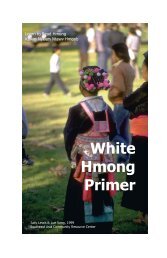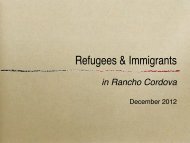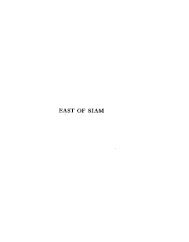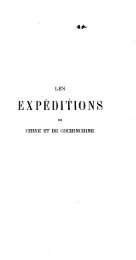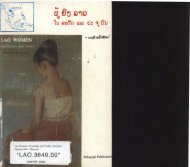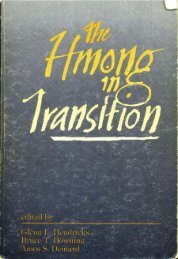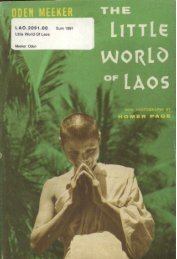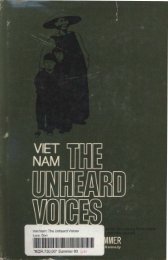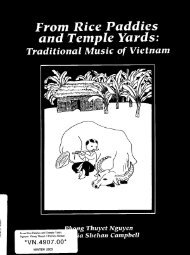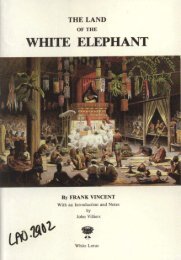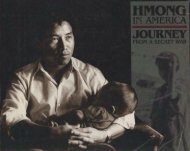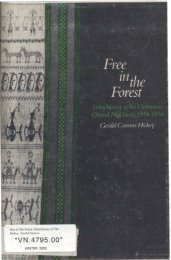PEOPLE
Grant, The Boat People - Refugee Educators' Network
Grant, The Boat People - Refugee Educators' Network
- No tags were found...
You also want an ePaper? Increase the reach of your titles
YUMPU automatically turns print PDFs into web optimized ePapers that Google loves.
The Bwt Aopk<br />
The refugee and Kampuchean issues exposed within the ASBAN<br />
group fundamentslly different perceptions of Vietnam and China.<br />
These differences occurred not just between AsMN member states,<br />
but also within individual MEAN governments. Indonesia, Malaysia<br />
and the Phitippines had all been inclined - at least at the start of<br />
the Vietnamese invasion of Kampuchea - to welcome the prosof<br />
a united communist IndeChina at peace with it~lf and strongly<br />
influenced by Viemarn, as a bulwark against the southern extension<br />
of Chinese influence. This thinking was especially common in Indonesia,<br />
where anti-China feeling ran deep, particularly among conservative<br />
leaders in the Muslim community and the military him-<br />
ashy. By the end of 1978, all five MEAN<br />
members had diplomatic<br />
relations of varying degrees of warmth with Vieulam, while relation^<br />
with China were more tentative. Malaysia, Thailand and the Philippines<br />
had exchanged ambassadors with Peking. Singapore was waiting<br />
for Indonesia, which had suspended diplomatic ties with China<br />
in 1967 after an attempted coup, in which Djakarta believed China<br />
to hrvc been involved, At the end of 1978, Indonesia felt fnr less<br />
suspicious about Vietnam thnn about China. Peking's senior victpremier,<br />
Deng Xiaoping, had just finished a tour of three ASBAN<br />
countries - Thailand, Malaysia and Singapore - during which he<br />
had refused to withdraw Chinese support (admittedly token but<br />
capable of king stepped up) for communist insurgents in South-<br />
East Asia. In contrast, Vietnam's premier, Phsm Van Dong, on a<br />
similar tour a few weeks earlier, had disowned the insurgents<br />
(although, since the communist movements were predominantly<br />
Peking-oriented, Vietnam had few links to break). China's Deng had<br />
also failed to reassure those A~EAN countries with worries about rhe<br />
allegiance of their substantial Chinese minorities that China would<br />
not intervene to protect their rights or influence their behaviour.<br />
Mistrust of China reinforced another trend in official Indonesian<br />
thinking. This was that the sprawling archipelago republic - the<br />
fifth most populous country in the world, overlooking the crossroads<br />
of the Indian and Pacific Oceans, rich in resources, influential in<br />
international affairs, and widr sizable armed forces - was the natural<br />
leader of the ASBAN nations. From there it wa8 only a short step to<br />
the view that there were two logical poles of mutually balancing<br />
influence in South-East Asin - Vietnam and Indonesia.<br />
Stability<br />
Indonesia's foreign minister, Dr Mochtar Kusumaatmaja, in an<br />
interview in the Far Eatern Economic Reorieeu of 15 Dmmber 1978,<br />
said in reply to a question about Soviet influence in Vietnam:<br />
I prefer not to use any term that denotes substwience of Viam m any<br />
country or intimates that Viemam is the proxy of sny counby. I have hod<br />
many convmtions with their Icaders, snd I am lware of their pride and thcu<br />
fean since independence. So the fact that hey have signed a ~aty and have<br />
been obliged to receive aid, is, I think, a result of circumstances, They haw<br />
uied to obtain aaai~unn from other wurces. They have cncouragcd investment<br />
mnd trade [from the west], but not much was forthcoming.<br />
The view from Bangkok was quite different. Hostility knvten<br />
Thailand and Vietnam stretched back for centuries. Without a<br />
buffet between them, Thailand felt exposed and therefore turned to<br />
its ASAN partners for support. Thailand had recendy broken off a<br />
protracted and frustrating series of negotiations with Hanoi over<br />
reparriation of an estimated 60000-70 000 Vietnamese refugees who<br />
had come to Thailand More 1975, most of hem in the late 19409<br />
and carly 1951)s to escape the fighting between the French and he<br />
Vietminh. They were concentrated in nonh-eastern Thailand near<br />
the border with Laos. Having continually had to deal with commu-<br />
nist insurgents in the north-east, some of whom w m thought to lean<br />
towards Hanoi, Thai authorities saw the Vietnamese refugees in<br />
their midst as potential fifth co1umnist~. Bangkok was also worried<br />
that Vietnam might bc tempted to push across the border into Thailand<br />
from westm Kampuchea or Laos to settle a numhr of old<br />
scores - one of them being Thai suppon for the American war in<br />
Vietnam. Thailand had fewer inhibitions about moving closer to 1 !<br />
Peking, Of all the ASEAW state8 with Chinme minorities, it had been<br />
by far the most suceessfu1 in absorbing them into its national life.<br />
Indeed, Peking was seen in Bangkok as r potential protector against !<br />
the Vietnamese, and Thai le~dtrs greeted the news of China's mititnry<br />
incursion into Vietnam, early in 1979, with relief.<br />
In January 1979 ASBAN finally came out with a joint statement<br />
naming Vietnam a8 n source of the refugee problem. This was due<br />
to pressure not only from its two most seriously affected members,<br />
Thailand and Malaysia, but also from its least affected member,<br />
Singapore, Singapore's attitude towards both Vietnam and the 1 I




